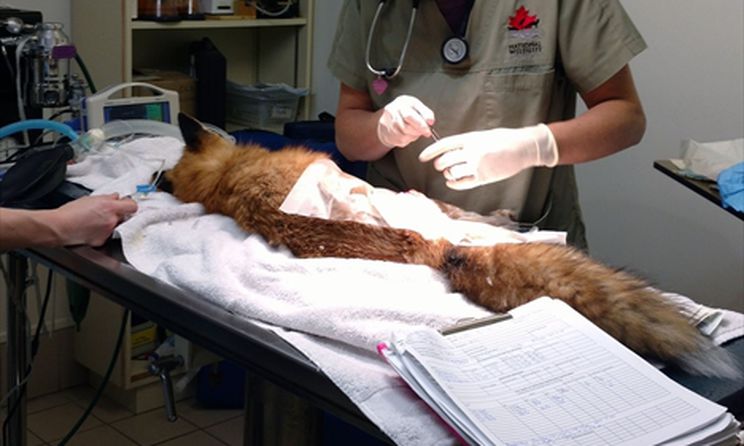By Karen Martin-Robbins
Caledon Enterprise
Tuesday, October 20, 2020
In 2002, while volunteering at an oil spill cleanup in Spain, Sherri Cox, who was a businessperson at the time, watched helplessly as a heavily oiled seabird slowly died.
The huge, oil-drenched gannet was sitting on the bow of a fishing boat, too far away to be saved.
It died along with 300,000 other animals in that one catastrophe.
She realized that there are very few people who take care of wild birds and animals.
She sought to change that.
More than 18 years later, Cox is a veterinarian and has established the National Wildlife Centre.
In six years, her centre has cared for more than 5,000 wild animals representing more than 200 native species.
But, while there are thousands of dedicated wildlife rehabilitators across the country, only trained veterinarians can perform the surgeries and other delicate veterinary procedures that can save the lives of these wild creatures, she said.
So, many injured, sick or orphaned animals are euthanized due to a lack of available veterinarians, especially in rural areas.
That’s why Cox is setting up a countrywide teaching facility for educating veterinarians on how to care for wildlife.
And, she’s planning to do it in Caledon.
“We chose Caledon because it’s a ‘green’ town,” said Cox, during a Sept. 29 council meeting.
Cox approached the town in the hopes that they would help her with her facility.
In 2019, with startup funds from the Gordon and Patricia Gray Animal Welfare Foundation, the organization bought a 100-acre site on Charleston Sideroad — which is already home to an animal hospital.
Another $6 million is needed to build the facility, organize a national network of local “rehabbers” and train the wildlife veterinarians to work with them.
Cox, who teaches at the University of Guelph, said veterinary students will be studying at the centre.
Along with training vets, Cox said, the facility will be a place where the public can bring in sick or injured wildlife “from moose to mice and bears to beavers.”
Drivers hitting animals on Caledon roads is more common than collisions involving alcohol.
In 2016, there were 44 alcohol-related collisions compared to 145 involving animals, according to Caledon OPP stats.
“We have an obligation to help animals that get hurt because of our interactions with them,” she said.


